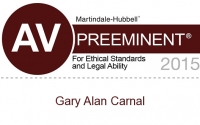Understanding Special Needs Trusts

There are some estate planning situations where it is not advisable to simply leave a family member or other loved one a large inheritance. For example, if that person is receiving certain government benefits, such as Medicaid, suddenly receiving even a small amount of cash might jeopardize their eligibility. To avoid such a scenario, you should consider creating a Special Needs Trust.
Why Create a Special Needs Trust?
A Special Needs Trust (SNT)—also called a “Supplemental Needs Trust”—is a type of irrevocable trust whereby a grantor transfers assets to a trustee for the benefit of a person with a disability or other special needs. In the context of estate planning, you can create a Special Needs Trust for the benefit of a disabled child or relative. Instead of leaving an inheritance directly to that person, you would instead give those assets to a trustee.
What is the benefit of this arrangement? For one thing, since the Special Needs Trust’s assets are titled in the name of the trustee, they are not considered the beneficiary’s property for purposes of maintaining eligibility for Medicaid and other means-tested government assistance programs. If the beneficiary depends on Medicaid for their health care, this is of critical importance. Normally, Medicaid requires a beneficiary to spend virtually all of their own money on health care before receiving benefits.
Another advantage of a Special Needs Trust is that the beneficiary’s creditors cannot go after the money in the trust to pay any debts. Even if a creditor has a civil judgment against the beneficiary, the Special Needs Trust is untouchable. This ensures that any money in the trust can go towards the beneficiary’s needs.
How a Special Needs Trust Works
As with any trust, the first step is to sign a trust document outlining the terms of the trust and naming the initial and successor trustees. If you establish a Special Needs Trust for a family member, you can name yourself as the initial trustee. After you sign the trust document, the next step is to obtain a separate federal tax identification number for the Special Needs Trust.
Trusts do not fund themselves, so you will need to make additional arrangements to ensure there are assets in the Special Needs Trust. One way to do this is by naming the Special Needs Trust as a beneficiary of your will or revocable living trust (a separate trust used for estate planning purposes). You can also name the Special Needs Trust as a beneficiary of certain types of transfer-on-death assets, such as a brokerage account or retirement plan.
Once funded, the trustee then has discretion to use trust funds to help improve the quality of the beneficiary’s life. While the trustee cannot make direct cash gifts to the beneficiary, there are generally few limits to the types of goods and services the trust can pay for. Among the common uses of Special Needs Trust funds are providing for special therapies and care not covered by government benefits, paying for utilities like telephone and Internet service, and enabling the beneficiary to travel and enjoy leisure activities.
A Special Needs Trust is a complex estate planning tool. It is not something you should try to take on without assistance. If you need help from an experienced St. Petersburg estate planning attorney, contact the offices of Carnal & Mansfield, P.A., today.







